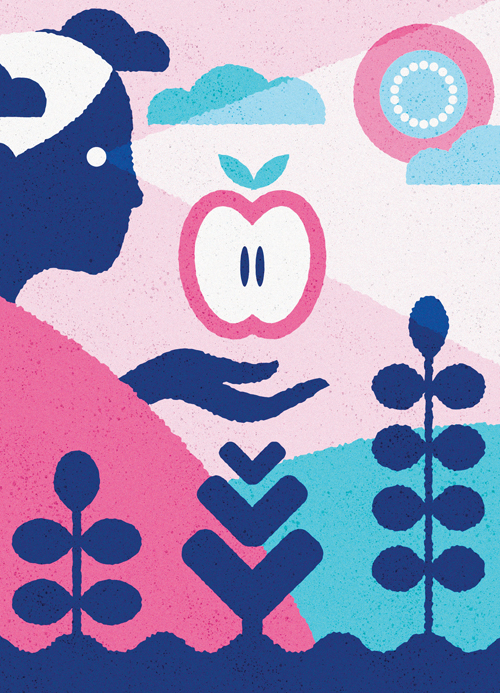
Your complimentary articles
You’ve read one of your four complimentary articles for this month.
You can read four articles free per month. To have complete access to the thousands of philosophy articles on this site, please
Young Philosophers
Learning To Love Our Teachers
Anushka Bhaskar (18) and Zachary Cerniglia (19) consider the importance of gratitude for education.
“If here before me stand both – my Guru [teacher] and Govind [the Almighty], I’d first prostrate to my Guru, because it is he who revealed to me the Govind!”
Anushka: Today we’re pulling from the pages of my culture to glean some wisdom from an Indian poet. Kabir Das was a great Hindu-Muslim poet of the fifteenth century. Renowned for his couplets, originally written in Urdu, Kabir Das held many ideas about the world that still hold today. One of his most famous rhymes tackles an idea quite relevant to the lives of students: reverence to our teachers.
Zac: Reverence to our teachers might be a foreign concept to some of us. After all, we can all think back to that hypercritical teacher who absolutely refused to grant us that A on the paper we worked on all month, even when we incorporated secondary sources, critical thinking, and counterarguments. I’m not bitter; I’m just saying some people don’t recognize a flash of genius when they see it.
Anushka: So, anyways, in this couplet, Kabir presents to us an interesting scenario. Let’s broaden the meaning of the word ‘God’ to include ‘ultimate truth’, whatever it is. If both God – a symbol of whatever truth we obtain – and our teacher stand before us, to whom do we first pay our respects?
Zac: Kabir would argue that without the knowledge our teacher gave us, we wouldn’t recognize truth in the form which it appears to us in, so first we must bow down to our teachers for giving us the lens with which to see the truth.

Gratitude For Education © Amy Baker 2018. Please visit instagram.com/amy_louisebaker
Anushka: Teachers serve as a very essential middleman to truth. Since we can take it that truth would have much less significance without an individual understanding it, we may also agree that teachers are largely responsible for the benevolence that truth carries to individuals and societies alike.
Zac: That reminds me of a connected idea: reverence to our teachers should extend to a reverence of the people we learn from through the books and other media they have produced – because aren’t they also ultimately our teachers?
Anushka: I had the chance to attend a seminar hosted by Harvard Professor of Philosophy Sean Kelly. He introduced a very interesting idea: that students should not underestimate the importance of living in a learning environment conducive to a deep understanding of the authors and people responsible for creating the material which we read and learn from.
Zac: An important consideration when trying to learn a difficult subject is, befriend the subject by befriending – in all respects of the word – your teachers – whether we’re talking about the author of your textbook, the original creator of the ideas it contains, or your professor or instructor.
Anushka: And all lessons are potentially valuable lessons.
Zac: Additionally, gratefulness to our teachers helps us learn better. So we benefit from our thankfulness for the lessons delivered to us, because thankfulness for both the digestible and difficult lessons helps us imbibe the knowledge more easily. It also changes us for the better.
Anushka: Following Kabir’s ideas on reverence to our teachers will make us all better students and learners. And reverence can take many forms. Perhaps one way to show respect for the lessons we’re being taught, is to think constructively but critically about them, and ask questions to further our understanding. When we do this, we too in a way become teachers, and the spiral of learning goes up a cycle. We hope to apply this lesson in our own lives, and ask you to consider doing the same.
© Anushka Bhaskar & Zac Cerniglia 2018
Anushka Bhaskar and Zac Cerniglia are freshman students at Harvard College and St Anselm College respectively.









